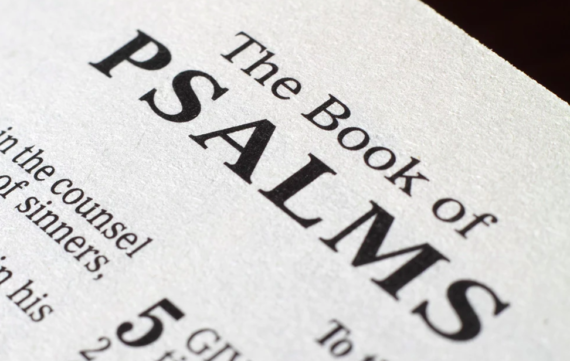A few Psalms are well known and easy to understand. Others are not. This one may belong in the latter category; but once we grasp it, the message is powerful.
Perhaps this psalm recalls when Jerusalem was delivered from an invading army; or perhaps it was a psalm used at Tabernacles or another festival.
They were not only to live out their relationship with God on an individual basis. The way the Law worked, seeking forgiveness involved seeking the aid of other believers. At three annual festivals all Jews were to gather as the people of God.




On the surface, the Psalm appears to praise an earthly city, but the true object of praise is the God who has revealed himself at that city. The psalm uses the city as a medium through which God can be known.
The 1st half of the Psalm calls on the listener to recognize Zion as the city of God.
Real
The Lord is the real God and Zion is the real city of God. Great is the Lord and greatly to be praised in the city of our God! His holy mountain, 2 beautiful in elevation, is the joy of all the earth, Mount Zion, in the far north, the city of the great King. 3 Within her citadels God has made himself known as a fortress. (1-3)
Zion is not geographically in the North, but geography is not the point here. Zaphon, or the North, was understood as the dwelling of the gods (cf. Isa 14:13). As Paul speaks of the church as the true Israel, so this Psalm is presenting Zion as the place where God is to be sought. Not that God is immobile, tied to this place, but he has chosen Zion as a place where he would reveal himself (cf. Isa 2:2ff).
Reactions
The sight of Zion produces different reactions in different people.
For behold, the kings assembled; they came on together. 5 As soon as they saw it, they were astounded; they were in panic; they took to flight. 6 Trembling took hold of them there, anguish as of a woman in labour. 7 By the east wind you shattered the ships of Tarshish. 8 As we have heard, so have we seen in the city of the LORD of hosts, in the city of our God, which God will establish forever. (4-8)
For the kings who came in pride, the sight of Zion was a cause of fear and panic (4-7). For the worshippers who came humbly, the sight of Zion was a cause of confidence (8).
Response
The second half of the psalm calls on them to respond to these facts.
We have thought on your steadfast love, O God, in the midst of your temple. 10 As your name, O God, so your praise reaches to the ends of the earth. Your right hand is filled with righteousness. 11 Let Mount Zion be glad! Let the daughters of Judah rejoice because of your judgments! 12 Walk about Zion, go around her, number her towers, 13 consider well her ramparts, go through her citadels, that you may tell the next generation 14 that this is God, our God forever and ever. He will guide us forever. (9-14
They are to worship God in his temple, at the heart of the city (9). They are also to proclaim his praise to the ends of the earth (10). They are to consider the whole city of God and tell the next generation about it (12-13).
Application today
In our day the church is God’s city, the people among whom he especially dwells (1 Cor 3:14-7; 2 Cor 6:16; Eph 2:21).
We have over-individualized Christianity. As a result, people are isolated in their faith, an easy prey to be misled and devoured by the evil one. We all need to spend more time considering the church.
It has endured despite persecution, heresy, poverty, and even worldly prosperity. The younger generation needs to know more about the faithful ones who have gone before them, and the wonders God has worked through their incompetent hands.1
In our day, as then, God’s city is insignificant in earthly terms. The significance of earthly Zion had to do not with its size or the strength of its walls, but with the God who had chosen to place his name and dwelling there. The significance of a Christian gathering today is not the building, the skill of the preacher, or the greatness of the people. It is the Spirit that is at work in the people that makes the church significant. Our very weakness gives his power the greater glory (2 Cor 4:6-7; 12:9 ~ 1 Cor 2:4-5).
Are we considering the city of God? Are we telling our children not only about God but about his city? Are we seeking, as we ought, the fellowship, the safety, and the praise of God’s city?
1 As the late Raymond Kelcy used to say, “One of the proofs of the divine origin of the church is the preaching it has endured.”

